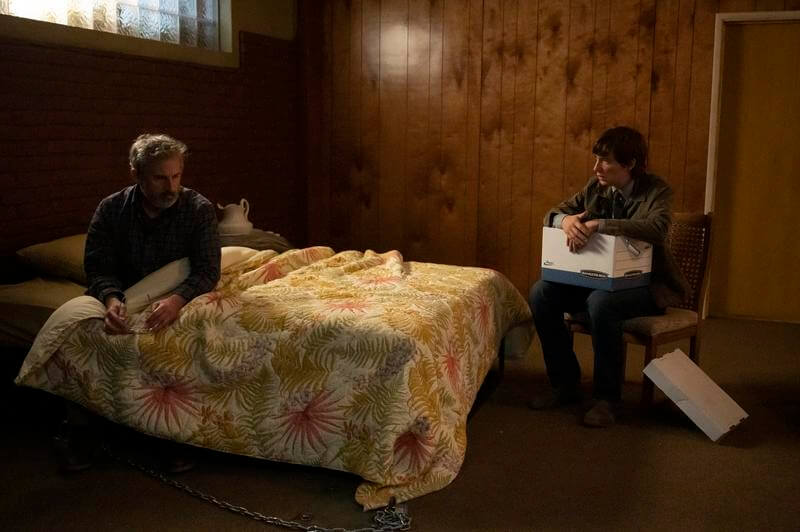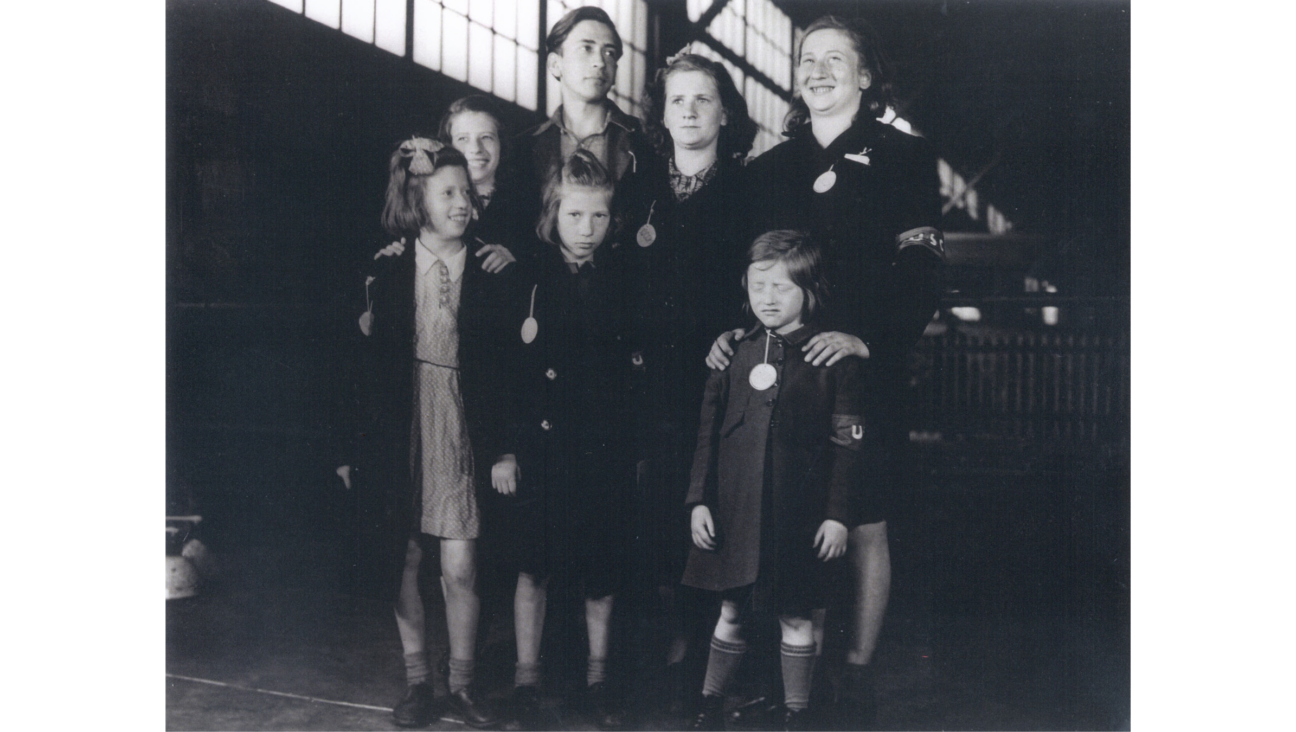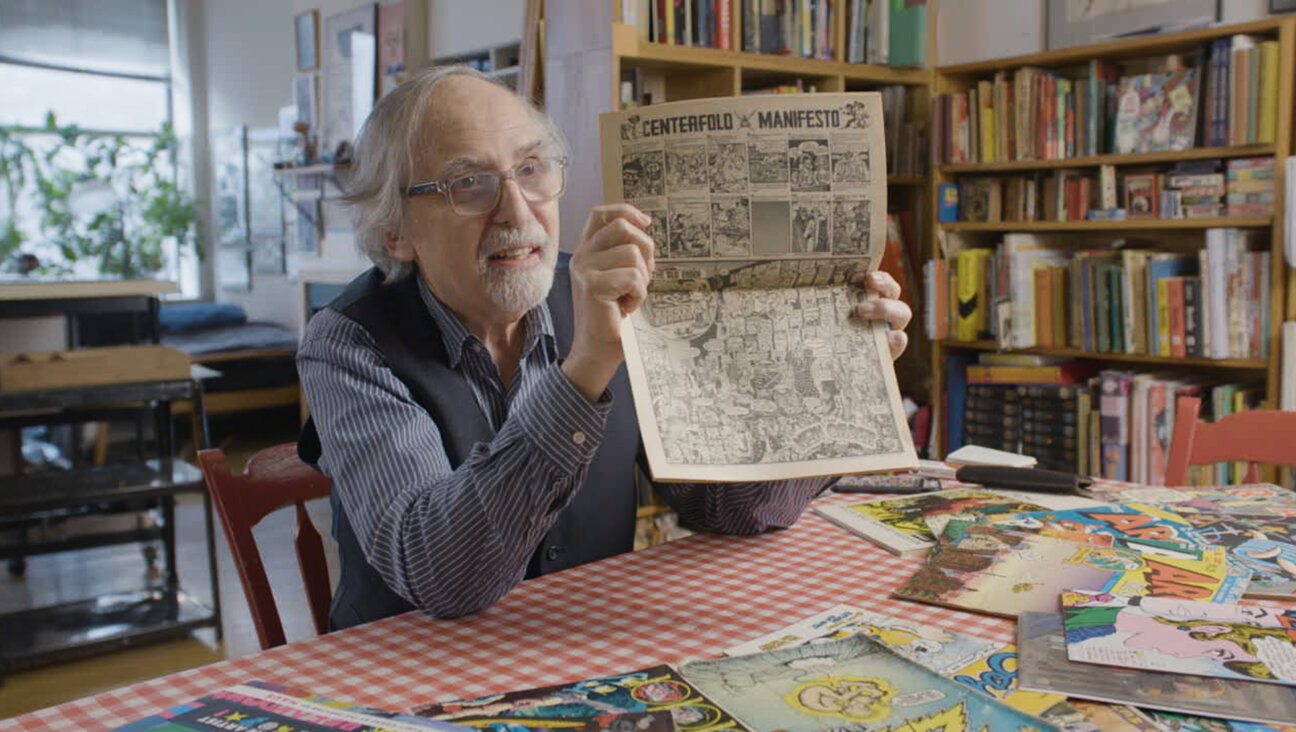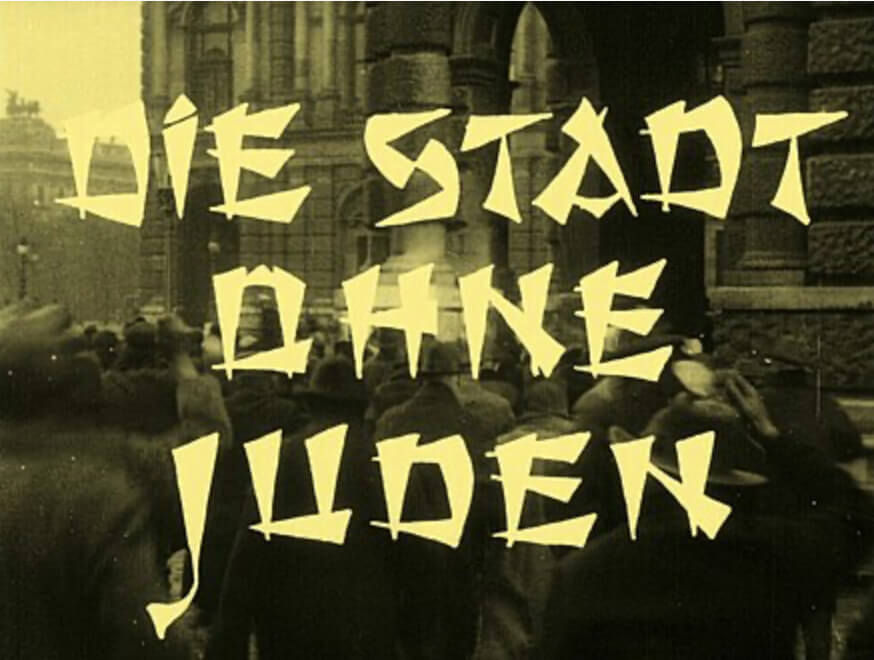‘The Patient’ is one of the most Jewish shows on television — should it have been more so?
In the FX limited series, Steve Carell says kaddish as a Jewish therapist held hostage

Steve Carell as Alan Strauss, Domhnall Gleeson as Sam Fortner in FX’s “The Patient.” Photo by Suzanne Tenner/FX
A few weeks ago, the creators of “The Patient” defended their decision to cast the non-Jewish Steve Carell as a Jewish therapist. Having just binged all 10 episodes of the FX thriller, I can see why.
I’m not going to weigh in on who should play Jewish, except to say that Carell gives a powerful and credible performance. I will come out to declare this one of the most Jewish shows to grace this era of prestige TV.
It’s more Jewish than “The Shrink Next Door,” which saw Carell’s “Anchorman” costars Paul Rudd and Will Ferrell honored with an aliyah.
Is it Jew-ier than “The Marvelous Mrs. Maisel”? I don’t remember Midge saying the entire kaddish. Or imagining herself in the barracks of Auschwitz. Or, in a tense moment of recognizable coreligionist prejudice, dismissing Orthodox Judaism as a “cult.” Let’s call it a possible tie.
Joel Fields’ and Joe Weisberg’s show, which debuts Aug. 30 on Hulu, doesn’t have a particularly Jewish premise. In it, Carell, as Dr. Alan Strauss, finds himself in a situation not unlike the one depicted in the film “Misery.” Only in this case, the Kathy Bates part is a young man named Sam (Domhnall Gleeson), a serial killer hoping to curb his homicidal urges by holding Alan hostage in his basement to continue therapy.
Carell’s character needn’t have been Jewish, and initially he wasn’t. Fields and Weisberg said the decision was made later to add “specificity and depth” to their drama. The show is excellent and tense and largely achieves that depth, but finds it in a familiar place: the arena of fathers and sons. It works, but is less interesting territory than the conflict between Jew and non-Jew that it often seems to be teasing.
While Sam and Alan’s sessions make up the bulk of the show’s early episodes, they’re soon replaced by Alan’s grappling with his strained relationship with his son, Ezra (Andrew Leeds), who became Orthodox (I think Chabad, though it’s never specified) during college. Through Alan’s flashbacks, we see the effect Ezra’s choice had on his mother, Beth (Laura Niemi), a cantor for a Reform shul. Beth lashes out, bristling at the rules Ezra’s denomination has about women and insisting on singing at his Orthodox wedding, causing a scandal.
In an unforgivable show of favoritism that keeps replaying in Alan’s mind, Beth serves ice cream to their daughter’s non-Orthodox children after dinner as Ezra and his sons look on. Ezra and Alan lock eyes, their pain palpable. Incredibly, the show doesn’t explain what is happening. Gentiles unhip to the amount of time kashrut requires between meat and dairy courses might well be confused – or think that ice cream is somehow off-limits for the Orthodox. The show doesn’t care, trusting that a savvy viewer will fill in the blanks. And it’s right to.
For all its Jewish bona fides — a soundtrack that includes Leonard Cohen, Debbie Friedman and “Dodi Li;” casual deployments of terms like “Ben Torah” and “Kibud Av V’Em;” a dream sequence with Viktor Frankl and the Kabbalistic notion that we’re all “broken vessels” — the show seems to be driving at a subtler Jewish theme to which it isn’t quite ready to commit.
At the close of the first episode, Sam tells Alan he “met with three different Jewish therapists,” and chose him to be his captive. The line is a kind of tell. Sam, who is non-Jewish and working-class, has internalized stereotypes about Jews. If he needed an accountant, I’ve no doubt he’d be hunting for synagogue treasurers.
Sam doesn’t seem to be an antisemite — he even attempts the kaddish later on — but his identification and selection of Alan as a Jew jolts their dynamic with a crueler subtext. Alan engages with epigenetic fears. He imagines himself in the gas chamber, the sunken eyes of prisoners from the “little camp” at Buchenwald staring at him. It’s not clear if Alan is a descendant of victims or survivors, though it’s maybe a logical place for his mind to go as he is chained to a bed and at the mercy of a young killer.
But the borderline sensationalism of these Shoah sequences, shot in black-and-white, feels easy compared to the flashes we get of Alan’s own experience. Left alone for long stretches, the doctor free-associates. He recalls a patient saying she never went to a “Jewish funeral.” Walking through a college campus, where he teaches, he’s stopped in his tracks by a flyer: “March against the radical Zionist agenda,” the graphic for which is an Israeli flag with a swastika in the place of the Star of David.
If the marquee traumas of Alan’s life include estrangement from his son, Beth’s death from cancer and his forced therapy sessions with Sam, there is also the sideshow stressor of being a Jew among gentiles eager to other him. It may seem like a small thing, but, as we learn from Alan’s own reflections, those microaggressions have major power.
When Alan imagines a session with his dead therapist, Charlie (David Alan Grier), in a book-lined room (yeshiva shel ma’ala, perhaps) it is the small interactions that lead to breakthroughs. Alan comes to realize that even a well-meaning compliment, for example telling his daughter-in-law she made the “best kosher steak,” was received as a dig. Unconsciously, Alan had been signaling that Ezra’s path was less legitimate, too fringe or restrictive– being just as rigid in his own ideas about how one should live his life.
With Alan and Ezra’s relationship, Weisberg and Fields, the latter of whom is the son of a rabbi, provide a father-son dynamic easily grasped by any audience, even if the specifics of the rift might seem obscure. (All viewers really need to know is that Ezra is, in Alan’s words, an “extreme Jew” and that Alan and his wife are another kind.) Bubbling under the surface is a more urgent story that was maybe too niche, if, at least to Jews, far more universal, a kind of Jewish “Get Out.”
As it is, “The Patient” handles Jewish content well, giving us moments that feel authentic and don’t deign to explain themselves. In the final reckoning it does not at all vilify Orthodox Judaism as one might fear. But the deeper Jewish questions too often feel like Easter eggs in a montage of Oedipal jousting. Alan dreaming he is at Auschwitz is one thing. Recalling a synagogue shooting or the likely fears he had of Ezra becoming visibly Jewish, would be something else entirely.
Being a Jew in America isn’t as dramatic or dire as being held hostage and fearing for one’s life. But sometimes it is — and, more often, it can feel like it.
A message from our Publisher & CEO Rachel Fishman Feddersen

I hope you appreciated this article. Before you go, I’d like to ask you to please support the Forward’s award-winning, nonprofit journalism so that we can be prepared for whatever news 2025 brings.
At a time when other newsrooms are closing or cutting back, the Forward has removed its paywall and invested additional resources to report on the ground from Israel and around the U.S. on the impact of the war, rising antisemitism and polarized discourse.
Readers like you make it all possible. Support our work by becoming a Forward Member and connect with our journalism and your community.
— Rachel Fishman Feddersen, Publisher and CEO






























